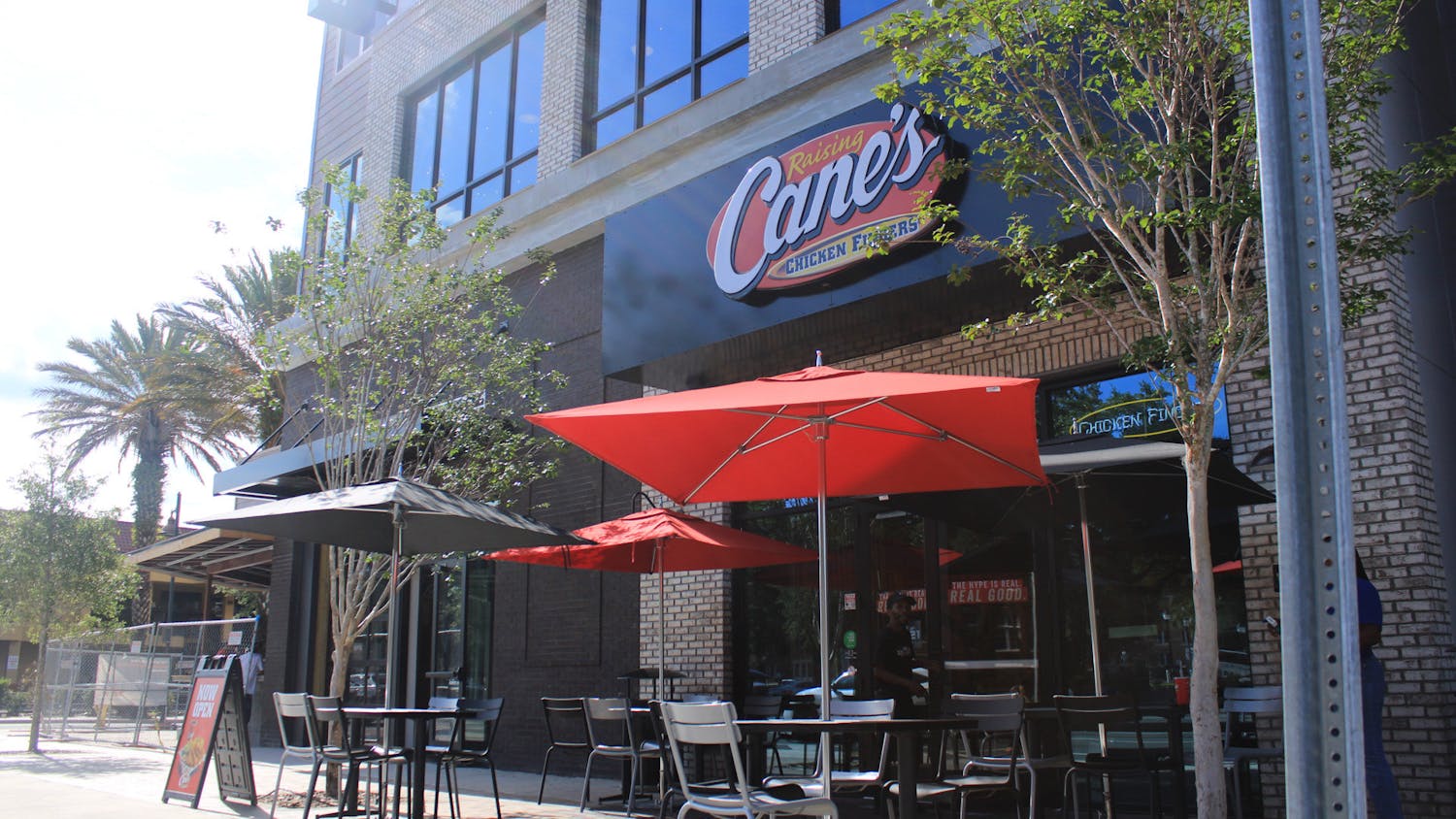For decades, popular food franchises and the American food industry have fought tooth and nail while the majority of the public just sits around and watches — or eats.
Many consumers, including myself, have developed an ignorance of what exactly is in the meat they are eating when they pick up a package at the grocery store or order a burger from a fast-food chain. Although some documentaries highlight the horrors of mass meat production, it seemingly isn’t enough to dissuade people from buying these products. This is because our food industry has not offered a better solution to feeding the growing population.
In August 2013, well-known hamburger chef Jamie Oliver won a small victory with McDonald’s. He revealed its hamburger meat, which is really just the fatty remnants of a cow, was washed in ammonium hydroxide to make these nasty remnants fit for human consumption.
These hamburgers are hardly fit to feed your pets, and millions of humans are ingesting them daily. Oliver also revealed how chicken nuggets are made. After the best parts of the chicken are chosen, the remaining fat, skin and internal organs are processed for the nuggets. So yes, McDonald’s, I guess you could technically say your nuggets are 100-percent real chicken. As far as we know, this only applies to the McDonald’s locations in the U.S., as franchise managers in Latin America, Ireland and the U.K. have stated they use meat from local suppliers instead. The American McDonald’s has since promised to change its recipe. But I’ll believe it when I see it.
Last week, Nestle recalled certain Hot Pockets because 8.7 million pounds of meat that was — and has been — used in its Philly cheesesteak-flavored sandwiches had been from “diseased and unsound animals” without full inspection.
How in the world did this meat get so far as to make it into someone’s freezer? How poor must the inspection process be at these slaughterhouses?
In a world where our food industry seem impenetrable and set in its ways, Perdue and Tyson, two major chicken companies, have come out with new antibiotic-free chicken products. This trend has also started hitting Chick-fil-A, which announced it would phase out the use of antibiotic-treated chickens within the next five years. The problem with the antibiotics in our food is it leads to more antibiotic-resistant bacteria in animals. These bacteria then infect the people who eat them.
Chipotle Mexican Grill went antibiotic-free more than 10 years ago and requires its suppliers to meet “humane housing standards” for chickens.
Unfortunately, not all other food sources are jumping on the humane train, but we should take a win when we see one.
All is not lost. Consumers can control more than they think. Most grocery stores nowadays have multiple food purchasing options. Unfortunately, most humane, organic, antibiotic-free options are more expensive, but you are paying for a better outcome for yourself.
Eggs and chicken can be purchased cage-free and organically at your local Publix or Trader Joe’s. Buy beef and pork that was raised and slaughtered organically and hygienically. Most times, you are only spending an extra few bucks to get better quality food. It’s time we, as consumers, take a stand against these mass processing industries and tell them what we want to spend our money on.
There is an ease of mindlessness when it comes to what you’re putting in your stomach, but food ignorance is not health bliss.
Rachel Kalisher is a UF anthropology and classics junior. Her columns appear on Tuesdays. Food ignorance is not healthy bliss
For decades, popular food franchises and the American food industry have fought tooth and nail while the majority of the public just sits around and watches — or eats.
Many consumers, including myself, have developed an ignorance of what exactly is in the meat they are eating when they pick up a package at the grocery store or order a burger from a fast-food chain. Although some documentaries highlight the horrors of mass meat production, it seemingly isn’t enough to dissuade people from buying these products. This is because our food industry has not offered a better solution to feeding the growing population.
In August 2013, well-known hamburger chef Jamie Oliver won a small victory with McDonald’s. He revealed its hamburger meat, which is really just the fatty remnants of a cow, was washed in ammonium hydroxide to make these nasty remnants fit for human consumption.
These hamburgers are hardly fit to feed your pets, and millions of humans are ingesting them daily. Oliver also revealed how chicken nuggets are made. After the best parts of the chicken are chosen, the remaining fat, skin and internal organs are processed for the nuggets. So yes, McDonald’s, I guess you could technically say your nuggets are 100-percent real chicken. As far as we know, this only applies to the McDonald’s locations in the U.S., as franchise managers in Latin America, Ireland and the U.K. have stated they use meat from local suppliers instead. The American McDonald’s has since promised to change its recipe. But I’ll believe it when I see it.
Last week, Nestle recalled certain Hot Pockets because 8.7 million pounds of meat that was — and has been — used in its Philly cheesesteak-flavored sandwiches had been from “diseased and unsound animals” without full inspection.
How in the world did this meat get so far as to make it into someone’s freezer? How poor must the inspection process be at these slaughterhouses?
In a world where our food industry seem impenetrable and set in its ways, Perdue and Tyson, two major chicken companies, have come out with new antibiotic-free chicken products. This trend has also started hitting Chick-fil-A, which announced it would phase out the use of antibiotic-treated chickens within the next five years. The problem with the antibiotics in our food is it leads to more antibiotic-resistant bacteria in animals. These bacteria then infect the people who eat them.
Chipotle Mexican Grill went antibiotic-free more than 10 years ago and requires its suppliers to meet “humane housing standards” for chickens.
Unfortunately, not all other food sources are jumping on the humane train, but we should take a win when we see one.
All is not lost. Consumers can control more than they think. Most grocery stores nowadays have multiple food purchasing options. Unfortunately, most humane, organic, antibiotic-free options are more expensive, but you are paying for a better outcome for yourself.
Eggs and chicken can be purchased cage-free and organically at your local Publix or Trader Joe’s. Buy beef and pork that was raised and slaughtered organically and hygienically. Most times, you are only spending an extra few bucks to get better quality food. It’s time we, as consumers, take a stand against these mass processing industries and tell them what we want to spend our money on.
There is an ease of mindlessness when it comes to what you’re putting in your stomach, but food ignorance is not health bliss.
[Rachel Kalisher is a UF anthropology and classics junior. Her columns appear on Tuesdays. A version of this column ran on page 6 on 2/25/2014 under the headline “Food ignorance is not healthy bliss"]





